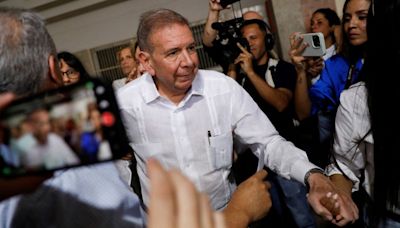Search results
3 days ago · Roman Catholicism. Signature. Philip II[note 1] (21 May 1527 – 13 September 1598), sometimes known in Spain as Philip the Prudent (Spanish: Felipe el Prudente), was King of Spain [note 2] from 1556, King of Portugal from 1580, and King of Naples and Sicily from 1554 until his death in 1598. He was also jure uxoris King of England and Ireland ...
Sep 4, 2024 · Spain - Philip II: When Charles abdicated his various lands (1555–56), Philip II (1556–98) succeeded to all his father’s dominions except Germany. His empire in Europe, now without the imperial title, was still only a loose union of independent states recognizing the same head. Philip, a great traditionalist, was not the man to inspire his different subjects with a new unifying idea ...
Philip II - Expansion, Religion, Diplomacy: For the first 20 years of his reign, Philip sought to preserve peace with his neighbours in western Europe. He was fighting a major naval war with the Ottoman Empire in the Mediterranean and, from 1568, he was faced with rebellion and war in the Netherlands. From the late 1570s, his policy gradually changed. The death (August 1578) without heirs of ...
Sep 1, 2024 · The Anglo-Spanish War (1585-1604) was a significant conflict between England, under Queen Elizabeth I, and Spain, led by King Philip II.It spanned nearly two decades and was marked by a series of naval battles, privateering expeditions, and colonial confrontations.
4 days ago · United Kingdom - Spanish Armada, Elizabeth I, Reformation: Mary was executed on February 8, 1587. By then England had moved from cold war to open war against Spain. Philip II was the colossus of Europe and leader of resurgent Roman Catholicism. His kingdom was strong: Spanish troops were the best in Europe, Spain itself had been carved out of territory held by the infidel and still retained ...
2 days ago · The expedition was ordered by King Philip II of Spain, after whom the Philippines had earlier been named by Villalobos. Legazpi established settlements in the East Indies and the Pacific Islands in 1565. He was the first governor-general of the Spanish East Indies. After obtaining peace with various indigenous tribes, López de Legazpi made ...
People also ask
Why was Philip a Spanish king?
What did Philip II do in 1568?
How did Philip II influence Spain?
When did King Philip of Spain become king?
2 days ago · A revision of customs duties in both England and Spain placed extra burdens upon trade, and in 1561 Philip II in his attempts to strengthen Spanish naval resources revived earlier legislation prohibiting the loading of goods in foreign vessels if Spanish ones were available. More problems of a political nature followed.



